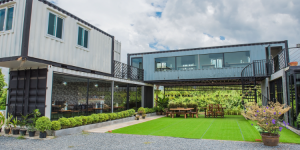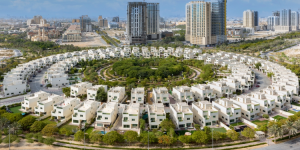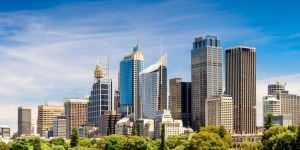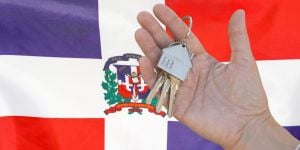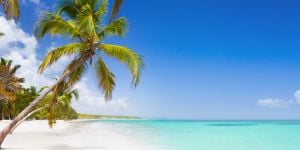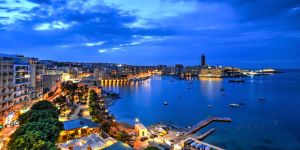
Ute is a German (and Swiss) “expat-since-birth”, as she likes to call herself. She has lived abroad her entire life, and is currently living with her loving family in The Hague, Netherlands. Ute has moved to different countries several times for study, work, and to accompany her partner, and with every move she had to reinvent herself, to adapt, and to overcome the lows. However, every country has been an adventure she has learned from and an opportunity to thrive and move forward.
Hi Ute, please introduce yourself. Where are you from, what are you doing in the Netherlands, and what were you doing before you arrived?
Hi, I'm Ute, an expat-since-birth. Expat because I lived out of my father's country (Germany), and since-birth because I have never lived in Germany ever since. I'm a multilingual Language Consultant and Intercultural Communication Trainer, and I help internationals understand the culture and language of a place, while maintaining their home language and culture.
What brought you to the Netherlands? How long have you been in the country?
We were both looking for a new job in several European countries after having lived in Italy for four years. In 2005, my husband found work in the Netherlands, and this is how we moved here.
What is the process of moving to the Netherlands?
Μoving to the Netherlands was a straightforward process. I didn't find it any different from moving to France, Switzerland or Italy. There are always the same things one needs to consider and tick off the to-do list.
What is your favourite thing about the Netherlands, and what is your least favourite thing?
My favourite thing about the Netherlands is the freedom and the good standard of living. My least favourite thing is the lack of preventive healthcare. It's discouraging when you explain your symptoms and worries to the physician and instead of receiving sound advice, you are prescribed paracetamol and are advised to wait for the symptoms to disappear.
How would you describe the Netherlands in one sentence?
It's a country with an endless sky; sometimes four seasons a day; a great love for outdoor life and a colourful mix of cultures – at least in the area I am.
What has surprised you the most about the Netherlands?
The fact that it is as child-friendly as Italy. Children have a say here, which I value and appreciate because children usually have a very interesting and fresh take on things.
How is today's expat job market in the Netherlands?
There are jobs for expats. It's even easier if you are fluent in Dutch. Before arriving, do your research and obtain accurate information about your qualifications: Are they recognised here? What is the process to validate your qualifications in order to practice your profession (especially if you are a doctor, psychologist, etc.)? Keep in mind that it may take some time to get all the papers in order.
How easy or difficult it is to find accommodation in the Netherlands, and what type of accommodation is available for expats?
There is a lot of help for expats to find accommodation, both for short and long stay. Many makelaars are specialised in finding accommodation for expats in areas that are closer to international companies and schools. Many expats who decide to stay longer, opt for buying a property instead of renting.
What are the biggest holidays in the Netherlands?
The biggest holiday is Sinterklaas. It begins with the arrival of Sinterklaas at the end of November and finishes on the 6th of December when Sinterklaas goes back to Spain. Christmas is less important than in other countries, but it is still celebrated, and of course New Year's Eve! It's impressive how the Dutch celebrate the beginning of the new year – including the Niewjaars zwemmen in Holland's seaside, Scheveningen!
What is some essential etiquette in the Netherlands?
“Doe maar gewoon, dan ben je al gek genoeg”, which means something like don't try to stand out; just be yourself, and you will still be unique as you are.
How do you find the lifestyle in the Netherlands?
I like the Dutch lifestyle. The fact that they always find a way to transform any gathering or situation into something that is gezellig (conviviality, cosiness, fun).
How is the transportation system in the Netherlands? How do you move around?
I prefer riding the bike. However, I'm not yet comfortable with long distance cycling, so I take the car or public transportation when needed. Someone suggested lately that I should buy an electric bike, but I don't see this happening soon. The traffic on the highways is incredible in the morning and afternoon, and I try to avoid it as much as possible.
How is everyday life for you in the Netherlands?
Everyday life in the Netherlands feels much more relaxing when compared to Italy thanks to the cycling culture and the trains, which make it less stressful to travel. You can also rely on the punctuality of services, which helps me get everything done on time.
What do you do in your free time?
I like to explore the surroundings by bike or boat; to have friends over for dinner or a movie; to read a book.
Are there activities for people who enjoy nightlife?
During the week people get early nights. It's more during the weekends and in the bigger cities.
What new habits have you developed in the Netherlands?
The biking, definitely. In Italy biking is dangerous, and in Switzerland it is too stressful and tiring. Also, I make the most of the outdoors when the weather is nice because you never know how long it's going to last.
And what old habits have you quit?
I have stopped waiting for the right moment.
What is your opinion on the cost of living in the Netherlands?
The cost of living in the Netherlands is alright; not as high as in Switzerland, but very high when compared to Italy.
What is something that you would like to do in the Netherlands but haven't had the opportunity to do yet?
I would like to obtain a skipper's licence; it's on my to-do list.
Share your most memorable experience in the Netherlands.
That undoubtedly is the birth of my twin-daughters in Delft. A truly intense experience!
If you could do the move to the Netherlands all over, what would you do differently?
I wouldn't change anything about the move. I would change something about the adaptation phase that followed the move. In 2005 the internet wasn't as resourceful as we know it today, and there were hardly any support groups and information for expats.
What do you think of the local cuisine? What are your favourite dishes?
There is the traditional Dutch cuisine and the more international one, which I would also call local because it is specific to this culture to embrace many different spices and tastes. I like pannekoeken, snert and haring, and I love hagelslag.
What do you miss the most about your home country?
It would be the former countries I lived in. I miss the feeling of living there, the taste of the food, the smells, the time I spent there. It's a genuine feeling of saudade.
Have you had a moment where you almost felt like leaving the Netherlands?
When a friend was diagnosed with cancer and ended up seeking treatment in Germany. I'm still not over this fear but I'm working on it; I am getting informed about the health system in the Netherlands and all the alternative options one has.
Can you give some useful tips that soon-to-be expatriates in the Netherlands might benefit from?
I always advise expats to enter with an open mind and their explorer's glasses on. Maybe take my ENJOY your life in The Hague program and some intercultural communication training. The better you spend the first weeks and months, the sooner you'll adjust and thrive.
What are your plans for the future?
My plans for the future are to keep enjoying my life here and to do more workshops, which bring together locals and internationals.









